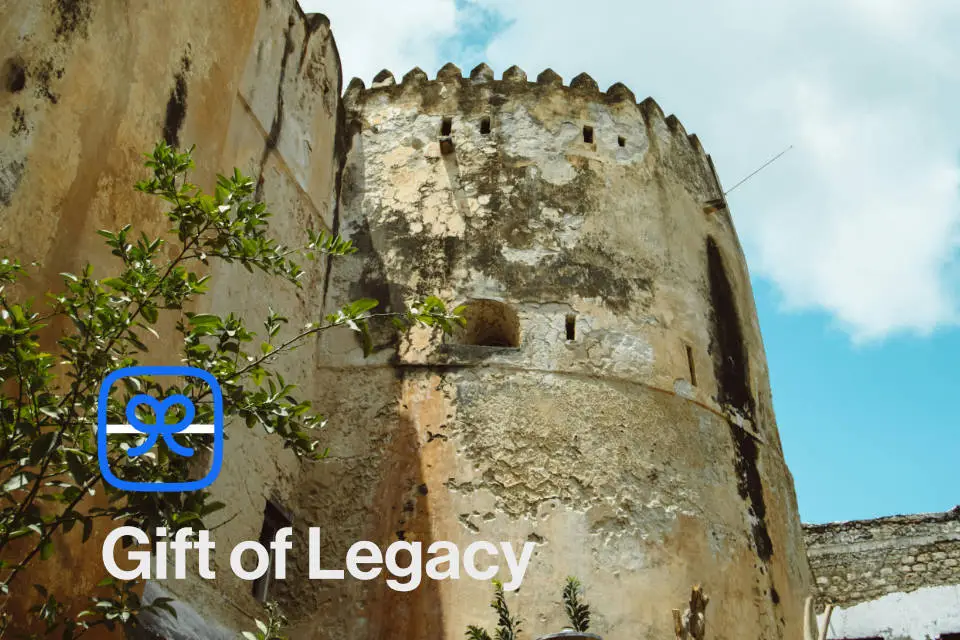The Gift of Legacy is a powerful and emotional fundraising opportunity, often overlooked, that allows people to create a great impact on causes they care about long after their lifetime. In 2024, charities received 62,100 legacy gifts, representing a 7% growth in charitable bequests.
This figure of 62,100 reflects the total number of legacy donations made through wills in the past year, demonstrating a growing trend of supporters choosing to include charitable contributions in their estate planning.
Evolve Catalyst recognises that the Gift of Legacy is more than just a financial strategy – it’s about creating lasting impact and building deep, meaningful connections with supporters.
In this guide, I will walk you through the details of legacy giving, offering actionable insights to develop, optimise, and expand your charity’s legacy fundraising programme.
Understanding the Gift of Legacy
1. What is a Legacy Gift?
A legacy gift represents a powerful way for supporters to create lasting change beyond their lifetime. It’s a donation made through an individual’s will, allowing people to support causes they’re passionate about even after they’re gone. Think of it as writing the final chapter of a lifelong commitment to making a difference.
2. Types of Legacy Gifts
Legacy gifts typically fall into three main categories, each with distinct types and benefits for both the donor and the charity:
- Residuary Legacies: The most flexible type, residuary legacies allow donors to leave a percentage of their estate to charity after all other expenses and specific gifts have been settled. This means the gift adapts to the estate’s changing value, potentially providing significant support to charities as estate values grow over time.
- Pecuniary Legacies: A fixed monetary amount specified in the will, pecuniary legacies are straightforward and predictable. While the amount remains fixed, these donations provide charities with reliable funding, especially useful for organisations planning specific projects or initiatives.
- Specific Legacies: These gifts involve donating particular assets, such as property, shares, or personal belongings. Specific legacies can have a powerful emotional impact and may carry a sentimental value that resonates deeply with the donor and the charity.
3. The Legal Aspects of Legacy Giving in the UK
Navigating the legal framework of legacy giving requires careful understanding. In the UK, will writing is governed by strict legal requirements to ensure the donor’s wishes are honoured precisely.
Evolve Catalyst guides charities to help them understand the nuance of legacy donations. The process involves working with executors, understanding inheritance tax implications, and ensuring complete transparency for donors.
Legacy gifts are often free from inheritance tax in the UK, offering a tax-efficient way for donors to support causes they believe in while benefiting their estates.
One of the most significant benefits of legacy giving is its potential tax efficiency. Charitable donations are typically exempt from inheritance tax, which can be a compelling reason for supporters to consider including a gift in their will.
According to the Remember A Charity campaign, which represents over 200 UK charities, the legal process of legacy giving isn’t as complicated as many believe.
The Impact of Gift of Legacy
Legacy giving isn’t just a fundraising strategy – it’s a lifeline for charities across the United Kingdom. In 2024, the numbers tell a compelling story of financial resilience and potential.
1. Current Legacy Giving
UK charities received £4.1 billion through legacy donations in 2023/2024, representing a reasonable but significant growth of 1-1.3%. This figure isn’t just a number – it’s a cornerstone of charitable impact, supporting everything from medical research to environmental conservation.
The past year saw 62,100 charitable gifts, a 7% increase that signals growing public engagement with legacy giving. The average residual gift value stands at £64,400, though this has slightly decreased by 2.5% due to a cooling housing market.
2. Case Studies: Legacy Giving in Action
Some charities have pioneered innovative approaches to legacy fundraising:
- WWF UK launched an online tribute fund, which resulted in an increase in online donations and provided a memorable way for supporters to honour their loved ones, significantly strengthening donor relations.
- Cancer Research UK took a bold approach with a multi-channel social media and TV campaign focused on legacy donations.
- Perhaps most impressive is Dignity in Dying’s digital strategy. By running a Facebook campaign offering free digital will services, they invested £5,000 and generated legacy pledges worth an extraordinary £220,000.
3. Future Projections
The long-term outlook is promising. Experts predict legacy income could exceed £10 billion annually by 2050. This projection isn’t just optimistic – it’s a testament to the growing recognition of legacy giving’s value.
Evolve Catalyst sees this as more than a financial trend. It’s about building sustainable funding models that allow charities to plan confidently and create lasting impact.
Organisations like Remember A Charity continue to drive awareness, with initiatives like the “Great Map of Willanthropy” showcasing the global impact of charitable gifts.
External resources such as The Fundraising Regulator provide crucial guidance for charities looking to develop robust legacy giving programmes.
Why the Gift of Legacy Matters
1. How Donors Benefit from Legacy Giving
Legacy giving is more than a charitable contribution; it allows donors to align their values with a lasting social impact. Through legacy gifts, donors can potentially reduce inheritance tax liabilities by including charitable bequests in their will, creating financial efficiency for their estate and support for causes they care about.
Beyond financial advantages, legacy gifts enable donors to extend their values and passions beyond their lifetime, making a profound statement: “I believe in this cause so much that I want to support it even after I’m gone.” Many legacy gifts also honour the memory of loved ones, reflect lifelong commitments, or fund causes that have directly impacted the donor’s life.
2. The Impact of Legacy Giving on Charities
For charities, legacy gifts offer stable, predictable funding, which improves long-term strategic planning. This enables charities to invest in transformative, ambitious projects, rather than managing financial uncertainty. Legacy giving also strengthens donor relationships by promoting the deepest level of engagement – a commitment that transcends lifetimes.
Legacy gifts help charities dream bigger, plan more strategically, and create a more substantial, long-term impact. The Fundraising Regulator provides guidelines to ensure these relationships remain transparent, ethical, and meaningful.
How to Support Legacy Giving in Your Charity
Legacy giving represents a critical fundraising strategy for charities seeking sustainable, long-term support. Understanding how to cultivate and manage legacy donations effectively can transform your organisation’s financial future.
1. Steps to Develop a Legacy Giving Programme
Charities need a strategic approach to legacy giving. Start by building a thorough programme that makes potential donors feel connected to your mission. This means creating clear communication channels, developing supportive resources, and demonstrating the tangible impact of legacy gifts.
Develop robust internal processes for:
- Tracking potential legacy donors
- Managing legacy inquiries
- Providing clear guidance on different types of legacy gifts
- Creating compelling storytelling around legacy giving
2. Working with Solicitors and Financial Advisors
Establishing professional networks is crucial. Build relationships with:
- Local solicitors specialising in estate planning
- Financial advisers who work with high-net-worth individuals
- Professional estate planning networks
The Solicitors Group highlights the importance of creating resources that make it easy for professionals to recommend your charity to their clients.
3. Choosing the Right Approach for Your Charity
Not all legacy giving strategies work for every organisation. Think of your:
- Donor demographics
- Charity mission
- Fundraising capacity
- Storytelling capabilities
I recommend a customised approach that speaks directly to your specific supporter base.
4. Legacy Giving Practical Tips
Successful legacy giving programmes require:
- Clear, compassionate communication
- Educational support materials
- Transparent impact reporting
- Professional legacy giving support
Remember that the most successful charities approach legacy giving as a relationship-building process. It’s not about immediate returns, but about creating lasting connections that support your mission for generations to come.
Top Gift of Legacy Trends for 2025
The aspect of legacy giving continues to evolve, presenting challenges and opportunities for charities across the United Kingdom. Understanding the current trends is crucial for developing effective fundraising strategies.
1. Shifting Legacy Donor Demographics
Traditionally, legacy donors were predominantly older people. However, 2024 is witnessing a significant change in donor demographics. Supporters in their 40s and 50s are now more likely to consider legacy giving, challenging long-held assumptions about charitable gifts.
This shift brings a new energy to legacy fundraising. Younger donors are more digitally savvy, socially conscious, and interested in making a positive impact. They seek transparency, connection, and clear evidence of how their legacy gifts will make a difference.
I encourage charities to adapt communication strategies to resonate with these emerging donor profiles. This means moving beyond traditional approaches and embracing more personalised, purpose-driven messaging.
2. Digital Innovations in Legacy Fundraising
Technology is revolutionising how charities approach legacy giving. Digital platforms are making it easier for potential donors to explore, understand, and commit to legacy gifts from the comfort of their homes.
Interactive tools now allow supporters to:
- Calculate potential legacy gift impacts
- Understand tax implications
- Explore different types of legacy
- Connect emotionally with a charity’s mission
Social media and targeted digital campaigns are becoming increasingly sophisticated, enabling charities to reach potential legacy donors with precision and empathy.
3. Economic Drivers for Gift of Legacy
Economic uncertainty often creates complex dynamics for charitable giving. In 2024, charities are navigating a situation affected by inflation, housing market fluctuations, and changing inheritance patterns.
Despite economic challenges, legacy giving has shown remarkable resilience. Donors continue to see charitable bequests as a great way to create lasting impact, even when personal financial circumstances are constrained.
The Solicitors Group suggests that charities should focus on:
- Providing clear, reassuring communication
- Offering flexible legacy giving options
- Demonstrating tangible, cost-effective impact
- Building trust through transparency
The key is to position legacy giving as a strategic, thoughtful approach to philanthropy that transcends short-term economic fluctuations.
Successful charities in 2024 are those that adapt, innovate, and genuinely connect with donors’ evolving motivations and values.
Addressing the Complexities of Legacy Giving
Legacy giving is a deeply personal journey that requires careful navigation, balancing personal commitments with philanthropic aspirations. Charities and donors alike must approach these decisions with sensitivity, strategic thinking and compassion.
1. Balancing Family Needs with Charitable Giving
The most significant concern for potential legacy donors is ensuring their family’s financial security. It’s not about choosing between family and charity but finding a harmonious approach that respects both commitments.
Charitable giving doesn’t mean compromising family inheritance. Many donors choose to leave a portion of their estate to charity after providing for their loved ones. Financial advisers recommend a balanced approach that considers:
- Immediate family needs
- Long-term financial stability
- Personal charitable values
I encourage charities and donors to have transparent communication with family members about legacy intentions, helping to prevent potential misunderstandings.
2. Navigating Complex Estate Planning
Estate planning involves complicated legal and financial matters. The complexity can feel overwhelming, specifically when integrating charitable giving into a will.
Professional guidance becomes crucial. I recommend working with specialists who understand:
- Inheritance tax implications
- Different types of legacy gifts
- Legal requirements for charitable wills
- Potential tax efficiencies
Each legacy gift is unique, requiring a customised approach that looks into individual circumstances, family dynamics and financial aspects.
3. Carrying Out Donor Intent
The ultimate concern for any legacy donor is knowing their intentions will be respected and implemented precisely as they wish.
Clarity is key. This means:
- Providing explicit instructions in legal documents
- Working with reputable charities with transparent processes
- Regularly reviewing and updating estate plans
- Maintaining open communication with chosen beneficiaries
The most successful legacy gifts are those built on clear communication, professional advice, and a genuine alignment between personal values and charitable impact.
The Future of Legacy Giving
Legacy giving is undergoing a profound evolution, shaped by tech innovations, social shifts and increasingly complex global challenges. Charities and donors are exploring innovative ways to make a positive, sustainable impact through philanthropic giving.
1. Technology in Will-Writing and Estate Planning
Digital platforms are revolutionising the way people approach estate planning. Advanced online tools now make will-writing more accessible, streamlined, and user-friendly than ever before. Artificial intelligence and sophisticated software simplify complex legal processes, allowing people to create complete estate plans more easily.
2. Legacy Giving Predictions Beyond 2025
Charitable giving is evolving rapidly. Predictions suggest a shift towards more personalised, impact-driven legacy donations. Donors are increasingly seeking transparency, wanting to understand precisely how their gifts will create tangible change.
Key trends expected include:
- Greater emphasis on targeted, purpose-driven giving
- Increased digital engagement with charitable organisations
- More flexible legacy giving options
- Stronger connection between personal values and philanthropic goals
I suggest charities adapt their strategies to meet these changing expectations, offering more innovative and responsive approaches to legacy giving.
3. Legacy Giving and Global Challenges
Legacy giving is emerging as a powerful tool for addressing complex global issues. From climate change to social inequality, charitable wills can provide critical funding for long-term, sustainable results.
Legacy gifts enable charities to:
- Fund transformative, long-term projects
- Invest in innovative solutions
- Provide consistent support for critical missions
- Build resilience in addressing global challenges
Donors increasingly view their legacy gifts as strategic investments in creating systemic change, rather than simple charitable donations.
The future of legacy giving is not just about financial contributions, but about creating enduring impact that transcends individual lifetimes. It represents a profound commitment to building a better world for future generations.
How to Drive Legacy Giving for Your Charity
Developing a winning legacy giving programme requires a strategic, compassionate approach that goes beyond traditional fundraising methods. Charities must create deep connections that inspire supporters to consider leaving a lasting legacy.
1. Develop Effective Communication Strategies
Communication is the cornerstone of encouraging legacy giving. It’s about telling compelling stories that demonstrate the real-world impact of charitable wills. Charities need to move beyond generic messaging and create narratives that resonate deeply with potential donors.
Key communication principles include:
- Transparency about how legacy gifts are used
- Personal storytelling that highlights tangible outcomes
- Clear, jargon-free explanations of legacy giving options
- Emotional connection to the charity’s mission
I recommend developing multi-channel communication approaches that meet supporters where they are, whether through digital platforms, personalised connections, or community events.
2. Build Long-term Relationships with Supporters
Legacy giving is fundamentally about relationships. It’s a long-term commitment that requires consistent, genuine engagement. Charities must invest time in understanding their supporters’ motivations, values, and personal stories.
Effective relationship-building strategies include:
- Regular, deep communication
- Personalised impact reporting
- Opportunities for supporters to engage with the charity’s work
- Recognition programmes that honour supporters’ commitment
Creating a supportive, welcoming environment that makes potential legacy donors feel valued and understood is fundamental.
3. Implement Innovative Legacy Campaigns
Creativity is key to standing out in the legacy giving. Successful charities are developing innovative approaches that capture supporters’ imagination and demonstrate the potential for lasting change.
Some innovative approaches include:
- Interactive digital platforms
- Community storytelling events
- Personalised impact calculators
- Collaborative initiatives with professional advisers
The most successful legacy programmes are those that treat supporters as partners in creating positive change, not just potential sources of funding.
My Final Thought
Legacy giving is more than just a financial transaction; it’s a powerful expression of hope, compassion, and a commitment to creating lasting change. Whether you’re a charity looking to inspire donors or an individual considering how to make a big difference, legacy giving offers a unique opportunity to extend your impact far beyond your lifetime.
The true strength of legacy giving lies in its ability to transform lives long after the initial gift is made. It’s about building bridges to the future, supporting causes that matter deeply, and creating a ripple effect of positive change that grows over time.
For charities, legacy giving is not only a fundraising strategy – it’s an invitation to connect with supporters on the deepest level. It allows us to be part of something larger than ourselves, contributing to long-term solutions for some of our most critical global challenges.
Every legacy gift, regardless of its size, has the potential to make a positive impact. It stands as a testament to human compassion, a bridge between generations, and a powerful tool for encouraging social change.
I encourage people and organisations to think beyond the immediate, imagining the long-term potential of their philanthropic efforts. Start your charity’s legacy giving programme today – reach out for support in developing a customised strategy for your cause.
Stay Updated with the Latest Charity Insights
Sign up for our newsletter to receive valuable tips, updates, and exclusive offers to help your charity thrive.



